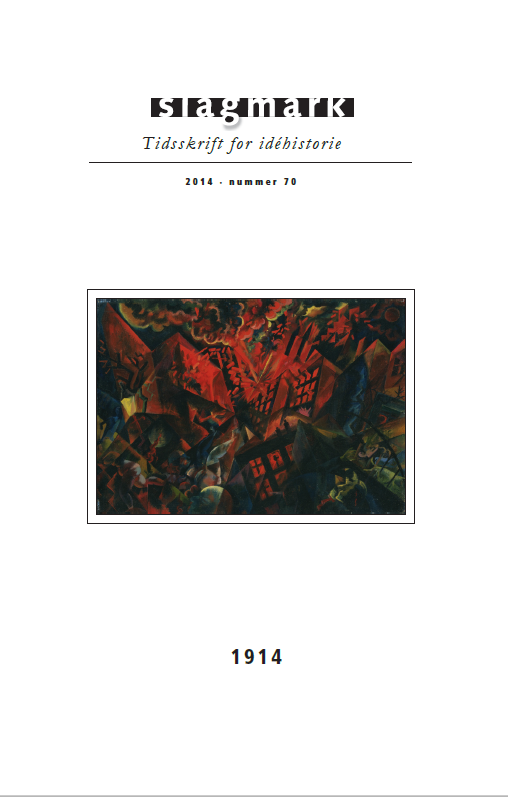Thomas Mann - Gennem krigens sygdomme mod en ny humanisme
DOI:
https://doi.org/10.7146/sl.v0i70.104412Keywords:
Culture, Civilization, World War I, Humanism, Pharmaconic logicAbstract
The German author and Nobel Prize winner Thomas Mann (1875-1955) perceived World War I as a moral battle against the civilization project rooted in the European enlightenment. Like many other German intellectuals of that time, Mann stresses an opposition between the concept of culture and that of civilization – this conflict is seen as inherent in the European soul – and defends Germany’s right to remain a culture that does not evolve into a civilization. The concept of culture can contain irrational features such as mystical, bloody and terrifying teachings, whereas civilization is characterized by reason, enlightenment, skepticism and hostility towards passion and emotion. In his major work The Magic Mountain (1924) however, Mann tries to overcome this opposition and displays, through the metaphors of the text, that a new humanism is dependent upon a mystical and completely illogical balance between culture and civilization. The main character of the novel does not succeed in finding this balance. But, nonetheless, Mann continues to see the possibilities of a new humanism through this perspective in order to point out a humanistic hope in the shadesof two European world wars.
Downloads
Published
2018-03-09
How to Cite
Navntoft, R. (2018). Thomas Mann - Gennem krigens sygdomme mod en ny humanisme. Slagmark - Tidsskrift for idéhistorie, (70), 47–64. https://doi.org/10.7146/sl.v0i70.104412
Issue
Section
Tema





